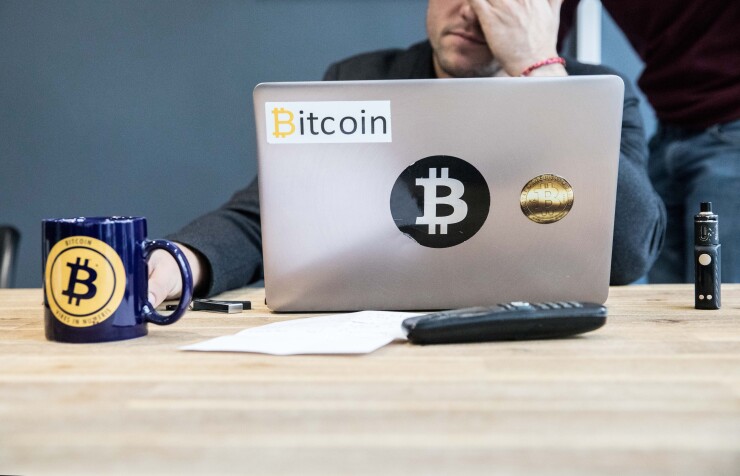Receiving Wide Coverage ...
The future(s) is now: The Commodity Futures Trading Commission has given the green light to allow CME Group and Cboe Global Markets to start trading bitcoin futures. The announcement is "a potentially huge step in the evolution of the digital currency, making trading bitcoin easier for Wall Street banks and small investors alike," the Wall Street Journal commented. CME said its expects to launch its bitcoin futures on December 18, while Cboe said it would announce its launch date shortly.

"Bitcoin's increased use as a tradable security actually makes it harder for it to take off as the payment system of the future it was designed to be," the Journal notes in a separate article. Because of bitcoin's skyrocketing price, few people are actually using it to buy things, which "could hamper its development as a regular currency. That raises the question of whether bitcoin and other cryptocurrencies will be widely used in payments and transactions soon, or if they will
Nevertheless, the paper says it's time for the world's central banks, including the U.S. Federal Reserve, to start thinking about
A group of current and former students at James Madison University in Virginia is offering investors digital tokens to finance their new startup, TaxToken, which offers an
Wall Street Journal
Right-hand man: Mick Mulvaney, the acting director of the Consumer Financial Protection Bureau,
Safety in numbers: American banks and credit unions have
"While some institutions can spend huge amounts on cybersecurity, they can still be vulnerable if there is an overall loss of confidence" in the financial system, the Journal explained. "If people suddenly can't access their accounts and money at one bank, customers at other banks could panic, thinking they might be vulnerable, too. This could prompt them to withdraw funds as a precaution and, in a worst-case scenario, spark a run on the wider banking system."
Hello, Richmond: Thomas Barkin, McKinsey & Co.'s chief risk officer and its former chief financial officer, is expected to be named
Tech exec axed: Visa
In a separate event, PayPal said the
Financial Times
Stocking up: Wall Street banks are restocking their inventories of stocks and bonds in anticipation of increased trading activity "under the lighter-touch regime of Donald Trump, who has promised to rip up Obama-era rules designed to rein in risk-taking," the FT reports. Since the beginning of the year, the Street's six big banks have increased their trading portfolios by more than $170 billion, to $1.71 trillion, the highest level in five years.
The increase shows "a willingness among the banks to increase their balance sheets, suggesting they are
Tech hiring: Citigroup hired eBay's chief data officer, Zoher Karu, to lead data and analytics for its retail operations in Asia, "a sign that banks are
Quotable
"The structure of the CFPB is just





